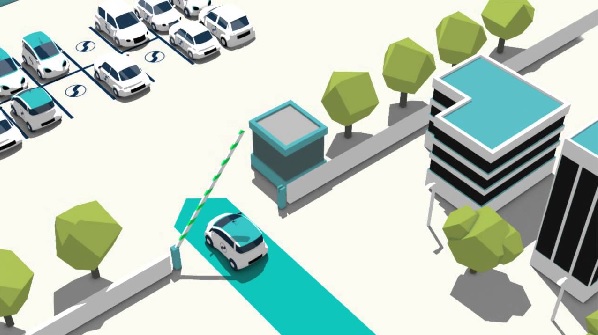By Falko Koetter, Julien Ostermann, Daniel Valerian Jecan
Abstract
Corporate carsharing – Schedule Optimization: Sharing electric vehicles among companies and users can increase efficiency of corporate car fleets. Due to charging times and limited ranges, high quality scheduling is necessary to achieve a high degree of utilization and in turn economic efficiency. Schedule optimization can help improving a schedule regarding utilization and cost, but does not take into account possible future bookings. If a schedule is fragmented, no future bookings can fit in. In this work, we introduce a measurement for the fragmentation of schedules and use it to minimize fragmentation and in turn maximize future booking potential. We evaluate the approach using synthetic and real-life trials, showing that fragmentation reduction can lead to increased utilization in electric vehicle fleets.
Introduction
Corporate carsharing: even though electric vehicles (EVs) have been available for some time, recent developments like the rising costs of fossil fuels, technological progress in vehicle technology and availability of regenerative energy make the economic use of EVs in company car fleets more and more feasible. The market potential is noticeable, estimated at about 1 million EVs until 2020 just for Germany and in particular for company car fleets at 30% of newly bought cars. The drawbacks of EVs, such as the high fixed cost for vehicles and charging infrastructures, have to be overcome by employing high utilization. The Shared E-Fleet project researches the economic operation of shared car fleets, making it possible even for small and medium enterprises, which could not economically operate a fleet on their own. Charging times and limited range are special challenges in the context of using EVs for corporate car sharing, which need to be taken into consideration when scheduling vehicles and business trips. When operating at capacity, the consequences of minor disruptions like delays or lost battery level can affect the future schedule, as trips might not be started on time or without sufficient charge to reach the destination. To reach high utilization of car fleets while minimizing cost or ecological impact and compensating these disruptions, continuous optimization of the schedule is used. While regular optimization techniques can be used to optimize a fleet schedule, e.g., regarding minimization of emissions, possible future states are not taken into account. These include the potential for future bookings, for which suitable timeslots in the schedule need to be available. If the schedule is fragmented, i.e., trips are distributed uniformly among vehicles, there may be no timeslot for a future booking, even though in aggregate, enough unused time on vehicles is available. In this work, we describe a rating method for vehicle schedules based on a fragmentation criterion and use it to provide optimized schedules with minimum fragmentation, thus ensuring maximum opportunities for future bookings. The contribution of this work is as follows: We introduce a fragmentation ratio, a measurement for the fragmentation of schedules and show how it is used as part of a closed loop optimization system.
Please, read the full article at: https://www.thinkmind.org/index.php?view=article&articleid=vehicular_2015_2_10_30016
